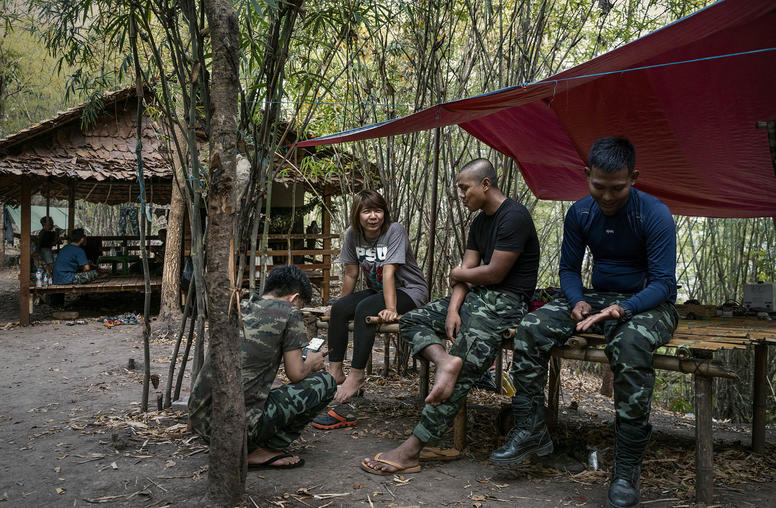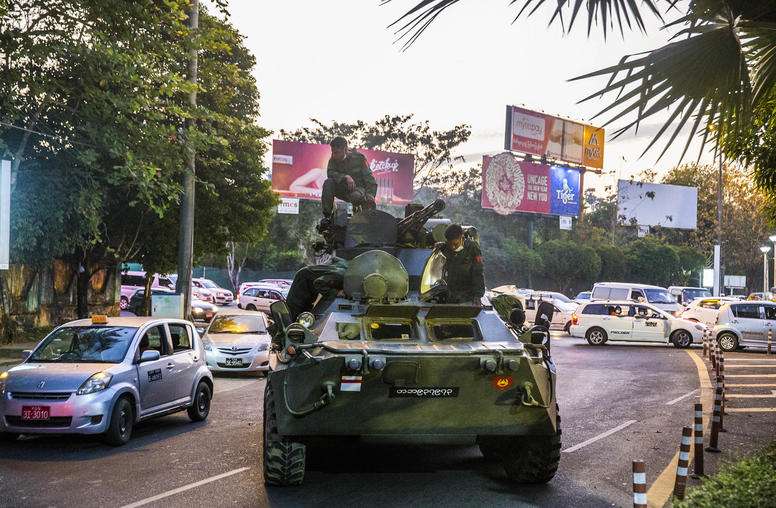Media and Conflict in Myanmar
Opportunities for Media to Advance Peace
New media freedoms in Myanmar present an opportunity to encourage the development of local media that can help resolve ethnic, intercommunal, and state-citizen conflicts. This assessment of the evolving conflict and media landscape in the country identifies types of media initiatives the government and NGOs can take that are likely to foster peace.
This report is also available in Burmese.
-cover.jpg) |
Summary
- Myanmar’s democratic reform, economic development, and peacemaking progress have been rapid since 2010, though significant hurdles threaten to derail the advances.
- This study is based on the Intended Outcomes Needs Assessment (IONA) methodology and assesses the changing relationships between media and conflict in Myanmar.
- Findings reveal a deeply rooted, intractable, and dynamic conflict landscape. Analysis focuses on three key conflicts: citizen-state, ethnic, and intercommunal.
- The developing media environment has been a central feature of the transition. The range of outlets for information sharing and the diversity and reach of content are expanding rapidly.
- Radio has a significant influence in ethnic and conflict-affected areas. Television does as well, especially in urban areas.
- New media freedoms are supporting peaceful transition but are also causing harm.
- Certain initiatives are needed to monitor and counter hate speech online and leverage social media and online mechanisms to advance social norms that support peaceful coexistence and tolerance.
- A Peace Technology Innovation Workshop to shape information and communications technology (ICT) initiatives that address issues such as land-grabbing, rumor, and corruption would be productive.
- Training for journalists, particularly in conflict-sensitive reporting, is a priority.
- Public relations for government officials and ethnic nationality leaders is recommended to increase awareness and foster accountability between citizens and state and to raise awareness on ethnic identity and peacemaking issues.
- Across all formats, training for ethnic nationality and Bamar journalists is encouraged to tackle ethnic identity and language issues in reporting.
- Additionally, the regulatory environment must be further reformed to support a progressive press law, new legislation for access to information and telecommunications, and education among local stakeholders on how to implement such laws.
- These initiatives, among others recommended by the study, would support, not replace, nonmedia statebuilding efforts.
About the Report
This report is based on a methodology, created by USIP, that can help donors, NGOs, policymakers, and local stakeholders in Myanmar determine which media initiatives can effectively be used to assist in mitigating conflict and building peace. The research offers a systematic process for integrating conflict and media assessments by considering media and nonmedia factors in the design of locally led initiatives to bring about social change. The authors would like to thank Than Lwin Htun for his key role on the assessment team, Lyndal Barry and Alison Campbell for their advice and editorial assistance, and more than one hundred interviewees in Myanmar for making the recommended media initiatives both purposeful and possible.
About the Authors
Theo Dolan is a senior program officer at USIP. He has worked with media stakeholders in Iraq, South Sudan, Pakistan, and Myanmar to find innovative ways to use media in resolving conflict. Stephen Gray is a consultant and researcher specializing in international assistance in peacemaking and peacebuilding. Previously he worked for the New Zealand government and the United Nations at home and abroad in Cambodia, Liberia, the United States, and South Sudan. He has been working on Myanmar since 2009 and based there since 2012.



